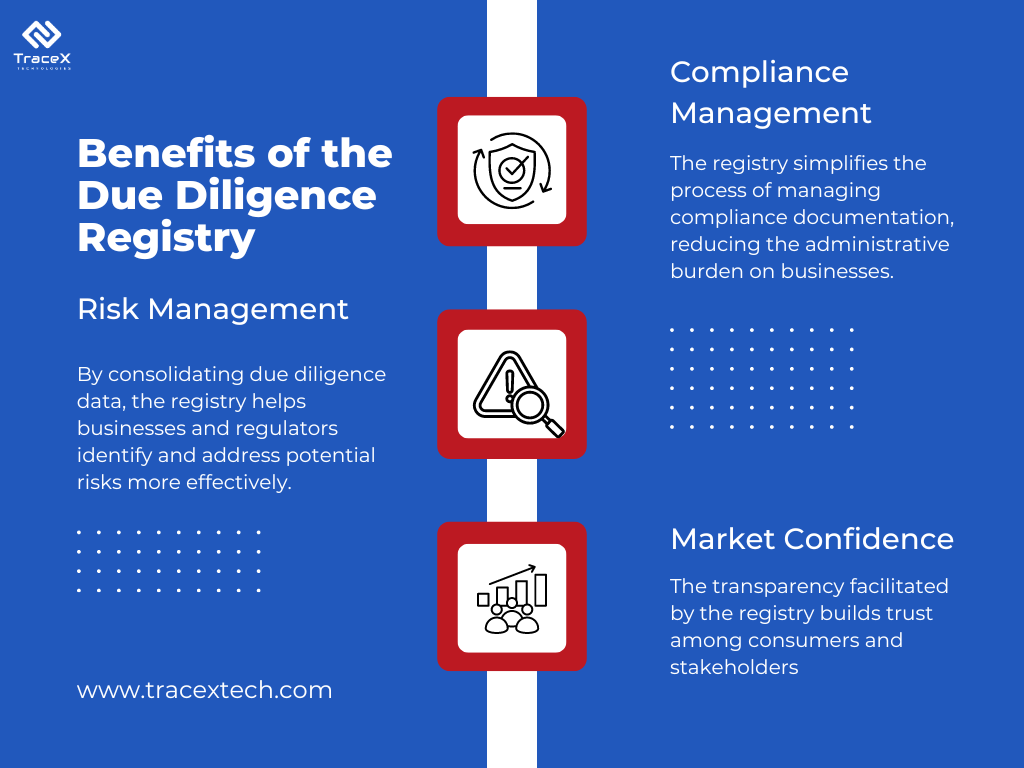Contact: +91 99725 24322 |
Menu
Menu
Quick summary: Understand how the EU TRACES platform works for EUDR compliance. Learn who must submit DDS, what goes into it, and how tech tools simplify the process.

If you’re navigating EUDR compliance, you’ve likely heard all about the need for “due diligence.” You may even have teams collecting geolocation data, verifying no deforestation, and documenting land rights. But there’s one element that’s often overlooked—and it could block your shipment at the border: TRACES.
TRACES (Trade Control and Expert System) is more than just a regulatory formality. It’s the digital gateway through which all regulated products must pass to enter or move within the EU market. Every operator placing commodities like cocoa, coffee, timber, or palm oil into the EU must submit a Due Diligence Statement (DDS) through TRACES—before that product ever reaches a customs checkpoint.
While many companies are scrambling to meet EUDR’s sustainability requirements, they’re missing the operational backbone that holds it all together. TRACES isn’t just a form—it’s the final step in proving compliance. And if you don’t understand how to use it, or fail to integrate your compliance workflows into it, your supply chain could grind to a halt.
So, let’s unpack what TRACES really is, who uses it, and how you can make it work for your business—before regulators come knocking.
Key Takeaways
If you’re an importer, exporter, trader, or compliance lead dealing with EUDR regulations, you’ve probably asked:
“Where do I actually submit my Due Diligence Statement?”
“Is there a government website?”
“How do I prove my product is compliant?”
That’s where EU TRACES comes in.
TRACES—short for Trade Control and Expert System—is the official EU platform where all EUDR-compliant products must be digitally registered before they enter the EU market. Think of it as the digital checkpoint your cocoa, coffee, timber, or soy must clear to legally move through customs.
TRACES is not just a place to upload files. It’s the centralized system the EU uses to:
If you’re placing any EUDR-regulated product on the EU market, this is your final compliance stop.
No DDS in TRACES = no shipment entry. It’s that simple.

Let’s clear up a common confusion.
The Due Diligence Registry is the legal concept introduced under EUDR—the place where DDS data must be submitted and stored.
TRACES is the actual technology platform—the interface operators use to upload data and trigger compliance validation.
In short:
This distinction matters because understanding TRACES is operational—it’s not just policy, it’s execution. It’s what your procurement, logistics, or sustainability team actually logs into, uses daily, and integrates with their systems.
Most companies are focused on traceability, polygons, and sourcing data (as they should be). But if you don’t know how to translate that data into a DDS in TRACES, your shipment might stall at customs—regardless of how compliant your supply chain is on paper.
So if you’re wondering…
“How do I submit DDS in TRACES?”
“Can my platform integrate with it?”
“Do I need to do this for low-risk countries?”
…then yes—this content answers you.
Because your real goal isn’t just compliance. It’s uninterrupted trade. And TRACES is where that decision is made.
Curious What TRACES Looks Like?
Get a firsthand feel of the EU’s official compliance portal.
Explore how Due Diligence Statements (DDS) are submitted and reviewed.
If you’re trying to navigate EUDR compliance, you’ve likely come across this question:
“Do I have to submit something in TRACES, or is that someone else’s job?”
Here’s the short answer:
If you touch the product, and it’s headed into or through the EU, you’re probably responsible—either for submitting a DDS or proving you’ve reviewed one.
But the nuances matter. Let’s break it down.
If you’re the one placing the product on the EU market—you’re considered an operator. That means you must submit a Due Diligence Statement (DDS) through the TRACES system before the product enters.
This applies whether you’re an EU-based importer receiving the goods, or a non-EU exporter marketing directly to an EU buyer.
Traders
Here’s where it gets tricky. Traders—those who buy and sell but don’t place the product on the market—don’t submit the DDS themselves.
But (and this is big):
They still need to access DDS records submitted by others and prove they’ve reviewed them.
Imagine you’re buying cocoa from an EU importer. You didn’t submit the DDS, but if regulators audit your records? You’ll need to show that you checked the upstream compliance.
Behind the scenes, EU regulators use TRACES to:
Their focus is enforcement—but you’re responsible for making their job easy by submitting accurate, complete data.
So, Who Really Needs TRACES Access?
If you’re in the supply chain, chances are you either submit or verify a DDS. And even if you don’t upload directly, you need a clear view of who did, what it includes, and if it covers your transaction.
In EUDR compliance, responsibility is layered, but accountability is shared.
The best strategy?
That’s where tech platforms like TraceX come in—linking farm-to-shelf data, batch records, and DDS submissions in one traceable, auditable flow.
If you’re here, you’re probably asking:
“What exactly do I need to include in my Due Diligence Statement (DDS)?”
“Will my documentation pass inspection?”
“Can my shipment be rejected if a small detail is off?”
These are the right questions—because submitting your DDS in the EU’s TRACES system is not just a bureaucratic step. It’s your final, digital proof that everything upstream—from farm to port—is deforestation-free and legally sourced.
And here’s the truth: one missing field can mean shipment delays, audit flags, or even market access loss.
What it is: GPS coordinates that show where the raw material was grown or harvested—accurate to the specific plot.
Why it matters: The EU doesn’t accept “country of origin.” They want to know: this exact field, this exact product, on this date—was it deforested?
Real-world concern:
“What if my smallholder suppliers don’t have digital records?”
Platforms like TraceX help field agents collect this on-ground with mobile tools—even offline.
What it is: Verification (often satellite-backed) that no trees were cleared on that plot since Dec 31, 2020.
Why it matters: It’s the core of the regulation. Without this, your product cannot be sold in the EU—even if everything else checks out.
“How to prove no deforestation for DDS?”
This is where satellite imagery, audit logs, and digital tools give you a huge edge.
What it is: Official papers proving land ownership, harvesting rights, and production legality.
Think: land deeds, permits, registration papers.
Why it matters: The EU wants to ensure the product wasn’t just environmentally sustainable—but also legally produced.
You might be asking:
“What if my suppliers don’t have formal land titles?”
This is a huge issue in smallholder-heavy regions—and why tech platforms must support partial documentation and local context.
What it is: An internal analysis showing that you’ve reviewed sourcing risks—political, environmental, legal—and taken steps to mitigate them.
Why it matters: For standard and high-risk countries, this shows you’ve done your homework—and you’re not blindly sourcing.
Common mistake:
Treating this like a formality. The EU expects meaningful due diligence—not just checkboxes.
What it is: Info that ties your DDS to exact batches of product, not just a generic commodity class.
Why it matters: This connects compliance documentation to physical goods at customs. It’s how authorities trace your shipment back to the land it came from.
Get this wrong, and even your most compliant product can be held or rejected.
Your DDS isn’t just about collecting data. It’s about connecting the dots—from a farm plot in Ghana to a chocolate bar in Berlin—with proof every step of the way.

Compliance under EUDR isn’t just about having data. It’s about getting that data into the right format, in the right place, at the right time.
And that “right place” is TRACES.
But here’s the real challenge: Most companies are still scrambling to manually compile farm-level data, match it to batches, and figure out how to submit a DDS without triggering a rejection.
This is where EUDR Compliance platform from TraceX change the game—by automating the complex, the repetitive, and the risky parts of DDS generation and TRACES submission.
Instead of chasing spreadsheets, PDFs, or phone photos from field teams, TraceX pulls real-time, validated data from your supply chain:
The system consolidates this into a pre-formatted Due Diligence Statement, ready for submission. No duplication. No formatting errors. No last-minute chaos.
You eliminate human error and ensure your DDS always includes the correct batch data, documentation, and compliance logic.
With TraceX’s API-ready connection to the EU TRACES portal, you can push DDS submissions directly—without logging into yet another clunky platform or worrying about file types.
Think of it as “one-click compliance.”
Your shipment data goes from verified to submitted in minutes, not days.
For customs and competent authorities?
It means faster processing, less back-and-forth, and more trust in your documentation.
What if you could see the EUDR-readiness of every batch you’ve sourced, sold, or prepared for shipment?
TraceX offers role-based dashboards for each stakeholder—whether you’re the original exporter, an EU-based importer, or a compliance manager overseeing both ends.

At a glance, you can:
Compliance isn’t just about today. It’s about proving your due diligence tomorrow, next quarter, or three years from now when the EU knocks on your door.
TraceX automatically maintains:
If you’re ever selected for an inspection or random audit, you’re ready—with everything in one place.
Compliance doesn’t have to be a bottleneck. With TraceX, you go from fragmented data and manual uploads to a connected, compliant workflow that protects your trade access—and your reputation.
EUDR compliance isn’t just about knowing your supply chain—it’s about proving it, and TRACES is where that proof begins and ends. It’s not just a portal; it’s your product’s passport into the EU. Whether you’re exporting coffee, importing cocoa, or trading timber, a properly submitted DDS is your green light for trade—and any gaps can cost you shipments, sales, and credibility.
Yes. Even when sourcing from low-risk countries, operators are still required to submit a Due Diligence Statement (DDS) in the TRACES system. “Low risk” doesn’t mean no compliance—it just means less frequent checks (1% inspection rate), not exemption.
TraceX integrates directly with the TRACES platform to auto-generate and submit DDS on your behalf after it receives the API key triggered from your registration. You stay compliant, without the manual workload.
Per batch. As of now, each batch or shipment entering the EU must have its own DDS submission. While annual DDS options were suggested, the current regulation still mandates batch-level reporting, especially for agricultural and forest-risk commodities.
